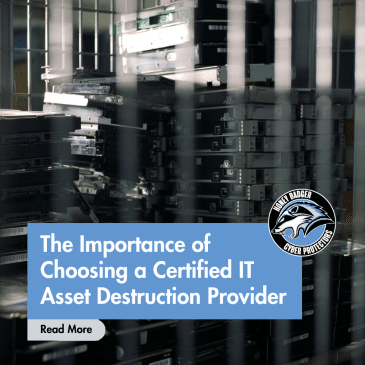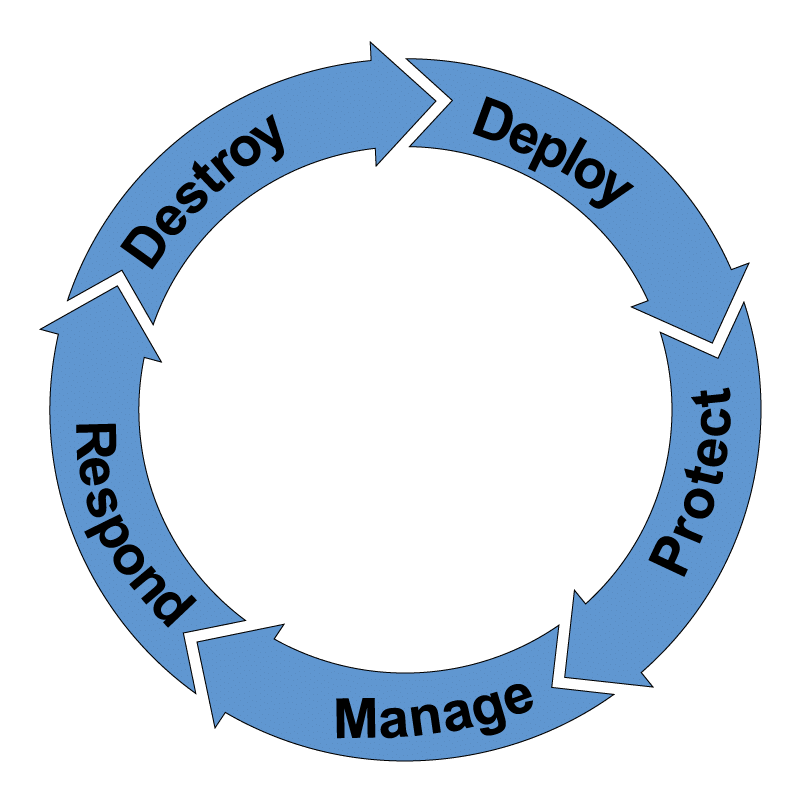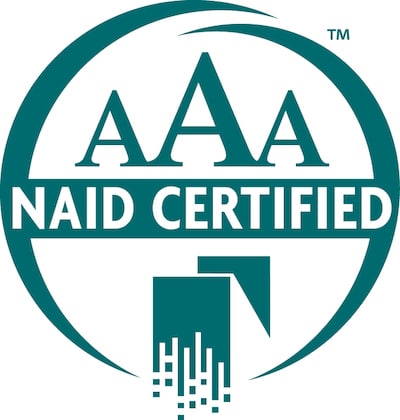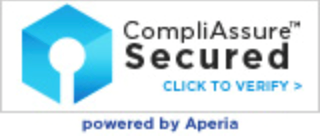The Importance of Choosing a Certified IT Asset Destruction Provider Over a Free Service
 Organizations of all sizes face significant challenges when securely managing and disposing of IT assets. One place to start during selection is to understand the critical differences between working with a certified IT Asset Destruction (ITAD) provider versus opting for a free service.
Organizations of all sizes face significant challenges when securely managing and disposing of IT assets. One place to start during selection is to understand the critical differences between working with a certified IT Asset Destruction (ITAD) provider versus opting for a free service.
When it comes to IT asset destruction, the stakes are incredibly high. A breach or mishandling of sensitive data can lead to severe financial penalties, loss of customer trust, and irreparable damage to your organization’s reputation. This is why it’s essential to understand the advantages of partnering with a NAID-AAA and SOC 2 Type 1 certified provider over a free service, which often falls short in security, compliance, and accountability.
Understanding NAID-AAA and SOC 2 Type 1 Certifications
The International Secure Information Governance & Management Association (i-SIGMA), formerly known as National Association for Information Destruction (NAID), is a globally recognized organization that sets the industry standards for secure data destruction. Achieving NAID-AAA certification is not a one-time event but an ongoing commitment to maintaining the highest levels of security and compliance in the operation and management of secure information destruction and storage businesses.
Similarly, SOC 2 (Service Organization Control 2) Type 1 certification is a rigorous auditing standard developed by the American Institute of CPAs (AICPA). It assesses an organization’s controls related to data security, availability, processing integrity, confidentiality, and privacy. A SOC 2 certification demonstrates that a provider has implemented stringent policies and procedures to safeguard data throughout its lifecycle.
Both NAID-AAA and SOC 2 Type 1 certified providers undergo rigorous audits and must adhere strictly to data destruction protocols and information security standards. These certifications include secure chain-of-custody, employee screening, operational security, data destruction methods, and overall information security management. They provide comprehensive assurance that your IT assets and sensitive data are handled carefully and precisely.
The Pitfalls of Free IT Asset Destruction Services
On the other hand, free IT asset destruction services might seem like a cost-saving option initially. Still, they often need more rigor and accountability that comes with NAID-AAA and SOC 2 certifications. Here are some critical areas where free services typically fall short:
- Security and Compliance Risks
- Free services often lack stringent security measures, increasing the risk of data breaches. Without NAID-AAA and SOC 2 Type 1 certifications, your data is not guaranteed to be handled according to industry best practices.
- Non-certified providers may not fully comply with regulations such as HIPAA, HITECH, PCI, and others. This can lead to costly fines and legal repercussions if your data is compromised.
- Lack of Full Transparency and Chain-of-Custody
- A certified provider should offer complete transparency and a secure chain-of-custody, ensuring that every process step is documented and accountable. Free services may not provide this level of detail, leaving you in the dark about how and where your data is being destroyed.
- Ask for itemized serial number reports, which will give you a comprehensive record of each asset’s destruction. This level of transparency is often absent in free services.
- Absence of Quality Control
- With the right provider, data destruction includes 100% quality control checks, ensuring no data is left behind. Free services might skip this crucial step, leading to potential data leaks.
- The lack of rigorous quality control in free services can lead to incomplete data destruction, leaving your organization vulnerable to data breaches.
- Environmental Compliance
- Adhering to a Zero Landfill Policy ensures that all materials are disposed of in an environmentally responsible manner. Free services may not have the same commitment to environmental compliance, potentially contributing to e-waste and environmental harm.
- Dedicated Client Support
- When a company supports clients across the U.S. and internationally, it knows how to offer a dedicated team focused on client experience. Free services often lack dedicated support, leaving clients with little to no recourse if issues arise.
- Personalized service ensures that your specific needs are met, whereas free services might offer a one-size-fits-all approach that doesn’t cater to your organization’s unique requirements.
Developing Internal Policies for ITAD and Data Security Partnerships
When selecting an IT Asset Disposition (ITAD) and data security partner, companies must develop robust internal policies prioritizing security, accountability, and compliance. These policies should guide your decision-making process and ensure that your chosen providers align with your organization’s values and needs. A policy-driven approach isn’t just about ticking boxes for compliance; it’s about setting the foundation for long-term data protection and operational integrity. Here are some key considerations to incorporate into your internal policies:
- Comprehensive Coverage:
Ensure that your policies mandate partners who offer substantial professional liability insurance coverage, similar to Reclamere’s $5 million Downstream Data coverage, underwritten by Lloyd’s of London. This level of insurance is vital for protecting your organization against potential data breaches and ensuring that any risks are mitigated effectively. Your internal policy should prioritize providers offering this kind of robust financial protection, often lacking in free or lower-tier services. - Secure ITAM Services:
Your policies should require that ITAM services are conducted with complete transparency and security throughout the process. This includes secure transportation, handling, and destruction of assets. By embedding these requirements into your policies, you ensure that your data is never at risk during any phase of the IT asset disposition process. Look for providers emphasizing security in their ITAM services, proven with NAID-AAA Certification, ensuring your assets are managed with the highest standards. - Regulatory Compliance:
Compliance with regulations such as HIPAA, HITECH, FFIEC, NCUA, and PCI is non-negotiable. Your policies should clearly state that any ITAD provider you partner with must meet or exceed these compliance standards. This helps protect your organization from regulatory penalties and ensures that your data handling practices are aligned with industry best practices. Policies should include regular audits and checks to verify ongoing compliance. - SOC 2 Certified Security Controls:
Incorporate into your policies a requirement for SOC 2 certification when evaluating potential ITAD providers. SOC 2 certification demonstrates a provider’s commitment to implementing and maintaining rigorous security controls. This should be a cornerstone of your selection criteria, as it gives you confidence that your data will be protected from start to finish. Your policies should emphasize partnering with providers who can prove their commitment to these high standards. - Support and Service Quality:
Hands-on, dedicated service is essential. Your internal policies should demand a high level of client support and expertise from your ITAD providers, something that free services often fail to deliver. By including this in your policies, you ensure you have a partner who will work closely with your organization to meet your specific needs rather than offering a one-size-fits-all solution. Quality service should be a non-negotiable aspect of your vendor selection process.
By establishing these internal policies, your organization can confidently navigate the selection of ITAD and data security partners. This policy-driven approach ensures that you are compliant and proactive in safeguarding your data and upholding the highest standards of security and service.
Why Free Isn’t Really Free
While a free service may save you money upfront, the potential costs, such as security breaches, regulatory fines, and damage to your reputation, can far outweigh any initial savings. Cutting corners is not an option when it comes to IT asset destruction. The risks associated with using a non-certified provider are simply too high.
By choosing a certified provider, you’re not just paying for a service—you’re investing in peace of mind, knowing that your IT assets and sensitive data are handled by experts committed to the highest standards of security, compliance, and customer care.
Conclusion: Making the Right Choice
In IT asset destruction, the old adage “you get what you pay for” rings true. Free services may offer convenience but have significant risks and limitations. NAID-AAA and SOC 2 Type 1 certified providers like Reclamere provide a robust, policy-driven approach that ensures your data is handled with the utmost care and precision.
When protecting your organization’s sensitive data, don’t settle for anything less than the best. Choose a partner with the experience, expertise, and certifications to deliver secure, compliant, and environmentally responsible IT asset destruction services.








